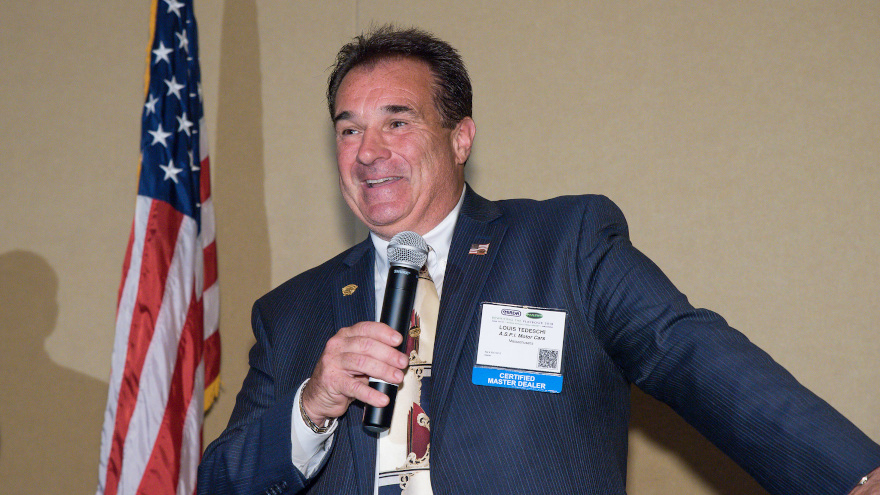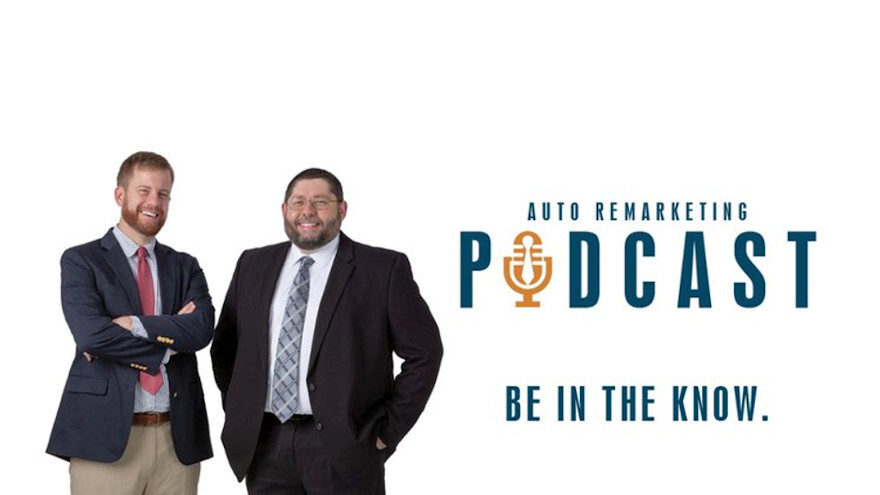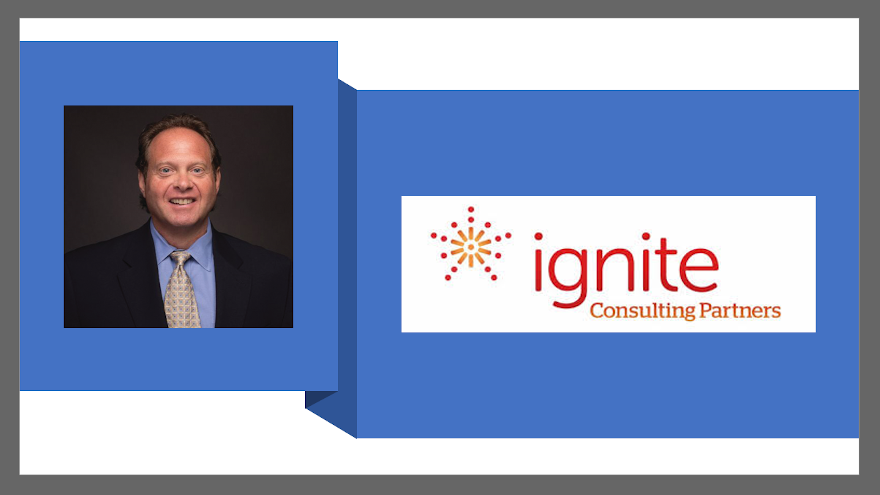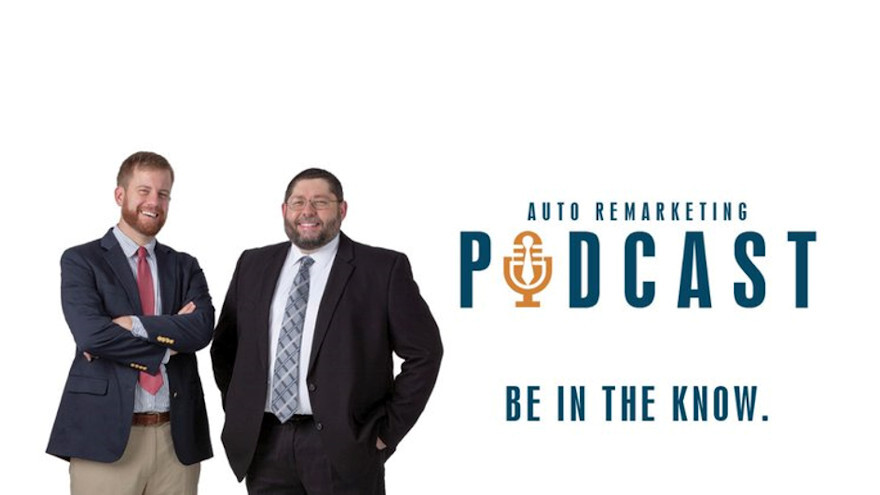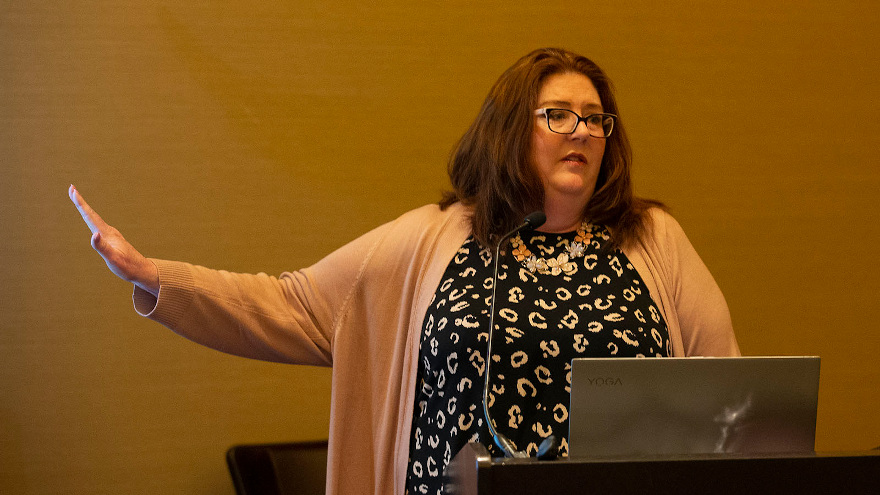Changes are continuing at the National Independent Automobile Dealers Association.
This week, NIADA announced a refreshed vision and mission statements and the 10 steps the association intends to take to accomplish its mission.
NIADA’s vision and mission statements now say:
“A robust, ethical and professional independent used-vehicle market trusted by consumers. The mission statement describes what we do and why we exist. Every action and program of the association should support the mission.
“Promote, educate and advocate for ethical independent automobile dealers and their consumers. To achieve the vision and mission, the board adopted goals and objectives, which constitute the strategic direction of the association.”
According to a message sent to BHPH Report from NIADA, the association spelled out 10 ways it can fulfill that vision, including:
• Advocating before executive and legislative branches, coordinating state advocacy efforts and participating in key legal proceedings.
• Being the authoritative voice of the used vehicle marketplace.
• Promoting NIADA members to consumers.
• Providing resources to consumers purchasing used motor vehicles.
• Helping NIADA members optimize their business to compete in an evolving marketplace.
• Facilitating best practices, benchmarking and research while advancing industry knowledge through meetings, training, certification, publications and video.
• Providing NIADA members with discounted industry-leading products and services.
• Assisting in the development and management of regional, state and local independent dealer associations.
• Fostering and strengthening relationships with fellow associations, vendors and similarly-situated organizations to advance NIADA’s goals.
• Being a fiscally strong association with a knowledgeable, professional staff.
NIADA said its board of directors met in Dallas early last month to plan the association’s strategic direction for the next five years. The gathering arrived after Bob Voltmann became the association’s chief executive officer in late October and spent much of the time between his hire date and Thanksgiving learning about NIADA and what it wanted to accomplish.
“We wanted to find out how we could make the national association more inclusive for our state affiliates,” NIADA president Lou Tedeschi said in the message sent to BHPH Report. “Bob Voltmann was hired as CEO with that mission in mind. We conveyed to him our thoughts and ideas on how to accomplish this goal and he and his staff put together this plan, which was approved unanimously.
“The final result will bring NIADA to new heights in the coming years. It has something for everyone. If you’re a retail dealer or a Buy Here-Pay Here operator, if you’re heavy into the service business, we’ll have programs, education and products to help you increase your profits.”
NIADA added that its board will review the plan each fall and assess progress each quarter.
Just like the dealers he serves, Brent Carmichael found ways to adapt.
The 20 group moderator, consultant and instructor with NCM Associates joined the podcast to describe how dealer gatherings have continued to be beneficial despite the pandemic creating restrictions on travel and indoor assembling.
To listen to this episode, click on the link available below, or visit the Auto Remarketing Podcast page.
Download and subscribe to the Auto Remarketing Podcast on iTunes or on Google Play.
The Who song, “Won’t Get Fooled Again” ends with the words that I’ve chosen to be the title to this article, and through them, Pete Townshend sums up the subject of revolution by seemingly saying “the more things change, the more they stay the same.”
I have been thinking about these lyrics a lot lately as I contemplate the coming regulatory changes in our auto finance world. A Biden administration means that consumer advocates (dare I say zealots) will once again have the ears of those in power and in many cases be the ones in power, just like they were during the Obama presidency.
The Trump presidency’s drive to roll back regulation is over and we can expect to see more efforts to direct what’s permissible (and harsh guidance on what’s not) when selling and financing vehicles. I hope that those who were “fooled” into a false sense of complacency during the Trump years are ready to do the work necessary to please the New Boss.
When I wrote this article, Biden was President-Elect and in the middle of a transition. CFPB director Kathleen Kraninger was replaced early in the Biden administration, and we can bet that a new director will hold principles very similar to former director Richard Cordray and Sen. Elizabeth Warren, who was instrumental in the creation of the bureau, hence my choice for the title and theme of this article.
For those of you who need a history refresher, that leadership period of the CFPB was known for aggressive consumer protection through a practice that came to be referred to as “regulation by enforcement,” with the bureau deterring what it perceived as wrongful conduct across the industry with highly publicized and Draconian actions against individual companies rather than by promulgating clear rules.
That bureau aggressively pursued theories based on disparate impact, discrimination, and ability to repay arguments. That bureau issued severe penalties for what it found to be “abusive” conduct, even though “abusive” wasn’t defined. It was gearing up for a challenge to widespread use of arbitration clauses by creditors.
It published debt collection rules that blurred the lines between first- and third-party collections and demonstrated an intent to promulgate restrictions that would have fundamentally changed the way debts were collected. In the minds of those running things prior to the 2016 election, a Clinton presidency was going to allow it to continue down these paths, and it had quite a robust consumer protection agenda.
My belief is that new bureau leadership will pick up right where they left off in 2016, and we can expect more of the same. Coupled with an FTC that’s been more active in the area of consumer financial protection over the past few years, state regulators that have increased their scrutiny of the lending industry, new mini-CFPB’s being created at the state level, and a generation of plaintiffs’ lawyers that studied the CFPB’s playbook on what constitutes bad conduct by lenders, and it appears that we’re going to have to navigate some treacherous waters over the next few years.
Plus, the new CFPB leadership will certainly have more to say about servicing, collecting and even underwriting practices during the pandemic
Suggestions for operators
So what’s a BHPH dealer to do? My advice is to do your BEST, and I don’t say that flippantly.
Your businesses come in many different models and sizes. I don’t expect a dealership with 10 employees to have the same compliance resources as one with 100 employees, but I think each one has to make its BEST effort to have a demonstrable compliance program that is appropriate for the “size and complexity of its business,” as the CFPB has itself said.
When a dealership has to defend itself, whether it’s a lawsuit or a regulator action, the key is to demonstrate all the steps that have been taken to attempt to get things right. That means having a written plan for compliance, policies and procedures that show there is a commitment to doing things the right way, conducting personnel training to engrain the “right way” in daily operations, doing some audits or assessments to verify that the business is operating as it should, and facilitating a company culture that believes in treating customers in a fair and transparent manner.
I challenge each of you to re-read that last paragraph and honestly ask yourself whether you are doing your best to achieve this goal. Discuss this with your leadership team, take a look at each department or business function and make a list of areas where you are strong and those in which you may be deficient. Then take steps to close those gaps. It’s not enough to “know” you are doing it right, approach it as if you will have to present and prove it to a judge and jury one day, which means your plan has to be written and demonstrable.
The New Boss is going to be tough, a lot like the Boss before the last one. If we are going to thrive over these next several years, and make no mistake, the goal is to thrive, not just survive, then it’s up to each of you to play a leadership role in this effort. One of the first things I tell clients is that compliance isn’t something that can be bought. Sure, I can lay out the plan, but it’s got to dedicate resources to get it done. 2021 is the time to meet this challenge head-on. Protect your business and make it your goal to end the year with a stronger commitment to demonstrable compliance.
Steve Levine is chief legal and compliance officer of Ignite Consulting Partners, which offers compliance, operational and best practices guidance to car dealers and finance companies. Ignite’s team has broad experience working with businesses of all sizes. These experiences allow them to develop strategy, overcome internal obstacles and implement meaningful change. Send a message to [email protected] to learn more. Follow Steve on Twitter @LawyerLevine for compliance and industry related content.
After one of the strangest years ever, how have you prepared for 2021? Election years are usually off the wall, but 2020 was ridiculous. Uncertainties that linger affect how a dealer plans for and navigates through 2021.
To write off 2020 as an odd year that can’t be analyzed and decide to “just go with the plan from the end of 2019” would be a mistake. There are some things to consider for this year that were not necessarily part of the plan heading into 2020:
• Some changes and issues from 2020 will linger into 2021, changing the way you do business.
• Some companies have focused more on digital marketing, communication, and sales because people don’t want to be around too many others because of COVID. However, we are still humans and there are people who want to see the car in person, talk to the salesperson face-to-face. How you do both concurrently needs to be considered for 2021.
• Americans will trust the industry even less. The pandemic, the election, corruption, the media, have caused confusion again and will cause consumers to be less trusting in general.
• Service has suffered. Many companies have used the pandemic as an excuse to offer substandard service. If you can still offer great service in spite of the challenges, you win.
• Google introduced more machine learning and artificial intelligence. This does not have anything to do with the pandemic. Some companies have missed it. This matters because it can assist but not replace the person who runs your Google Ads if used properly.
• Google and Facebook no longer allow narrow geographical targeting for industries that offer financing, due to past redlining and discrimination. To make every dollar count for our clients, when using Google Ads we target high performing ZIP codes rather than a larger area. We have a different plan for 2021 for our clients due to Google’s new rules.
The savvy dealer will prepare for 2021 using all or most of the methods explained here.
Brainstorm and mastermind
Albert Einstein was a big fan of regular masterminds. He was pretty smart. Your 20 Group is a form of a mastermind group. Utilize it. Get your 20 Group members together to consider new ideas for 2021. Although we all hope it is not like 2020, it will still be a unique year — and unique ideas are needed.
You can also use your team to brainstorm as you navigate through 2021 — not just the management team but everyone. For a brainstorming session to be effective here are a few things to do:
1. Someone (a moderator) has to be in charge at the front of the room, but it doesn’t have to be management or ownership. Keep in mind that some employees may feel nervous sharing certain ideas in front of management. They may feel like you have shot them down in the past or they may be embarrassed. Th e person running the brainstorm session should have experience doing so. They should know how to “run the room,” engage everyone in the room and encourage participation and open sharing.
2. Contribute first but stay in control. Everyone spits out ideas and the moderator writes them down. No ideas are stupid. The list gets narrowed. The moderator helps the team determine the pros and cons of each idea. How to do something is important but also who is going to do it.
3. After the ideas are narrowed to a manageable level, map out implementation and what that looks like. If the team is engaged throughout this entire process they are more likely to perform when it is time to implement. We’ve all had great ideas that were sure to succeed only for them to fail because of a lack of implementation.
Keep your eyes peeled and tell your team to do the same.
Around 1913 a man named Henry heard about a highly productive company in Chicago. It was a completely different industry than his, but he knew he could get great ideas completely outside of his wheelhouse. When Henry visited the Swift & Company’s Meat Packing House in Chicago, he saw how meat hung from a conveyor that moved hog carcasses past meat cutters, who then removed various pieces of the animal.
Henry brought that idea to the manufacturing industry to keep up with the demand for the Model T Ford on an assembly line. This enabled Ford to build vehicles so much faster than they were able to give everyone a raise while lowering the price of the vehicles. Henry Ford is sometimes credited with creating the middle class after swiping a great idea from a completely different industry.
Drive-through windows were created by banks, then fast-food restaurants copied the idea. Now buy-here, pay-here dealers have drive-through payment windows.
Get ideas completely outside of your own industry. Look at other high-ticket sales. How are they selling during this odd time? If holding a brainstorming session, ask team members to be on the lookout for great ideas totally outside of your industry. Tell them to bring those ideas to the meeting. It will stimulate creativity and a great idea may be tweaked to work for your company.
Fresh eyes
In his book, Customers For Life, Carl Sewell reveals that he hires consultants all the time even when things are going well. He knows that no matter how successful he is, he needs others to point out things that he is too close to the situation to see clearly. He also knows that the fastest way to fix something is to bring in specific expertise.
I am often personally hired to analyze marketing and advertising strategies and methods. We come up with new strategies, help the dealer save money and/or help the dealer exploit new opportunities in the marketplace. Sometimes I point something out that should be tweaked and the dealer says, “Oh yeah, I know that. Why didn’t I already do that?” The reason is that you need fresh eyes looking at everything.
If you have your salespeople look at something, they will likely see it with the same perspective as you do — and that doesn’t help you. Or if something is known to be your baby, your employees will not want to point out any potential improvements.
Good luck in 2021!
Kenny Atcheson is the founder and president of Dealer Profit Pros and author of Marketing Battleground: How to Deploy Under-the-Radar Strategies to Explode Your Profits. Kenny teaches workshops and speaks at conventions and 20 Groups. His company offers several marketing and advertising programs, customer service and sales training. His website can be found at www.DealerProfitPros.com.
Buy-here, pay-here dealership expert and senior consultant for AMS Consulting Gene Daughtry returns for another podcast episode to share some of the most valuable lessons he and independent operators learned during the pandemic.
Daughtry also has a handful of suggestions to help owners start 2021 positively.
To listen to the entire conversation, click on the link available below, or visit the Auto Remarketing Podcast page.
Download and subscribe to the Auto Remarketing Podcast on iTunes or on Google Play.
One of the hardest parts of running a business is finding good help. I imagine most dealers agree with that statement.
I think that is part of the difficulty, you are looking for help. A warm body to fill a spot. You do need people to help you, but they should not be seen as “help.” You should be looking for team members. You want to have a group of people together that understand the mission and have become a team that when pushed they get every task necessary handled the way you want them handled.
There are many ways of achieving this. I have been in multiple dealerships for different reasons over the decades. I have created teams in four different operations I built, so I do understand the challenge of team building.
A big part of having successful teams is making sure everyone in your operation understands what you need done. Your team should know what you need to happen when someone comes through the door. A great team knows what every associate of the team does and how each of the tasks affects the tasks any other team members perform. You want everyone pulling the rope the same direction.
One important part of a team is the sales position. This is not a job just anyone can do. I have seen dealers that believe they can have any body they hire be the salesperson. If you are paying hourly with a small “move “ bonus for each car sold, you set down payments, prices and just turn whoever you hire loose then there is probably turnover because of a lack of training with pressure to perform leads to, or highlights poor dependability and work ethic.
I have had dealers and managers tell me “we cannot hire commission salespeople here.” I think that line should actually say “it is hard to hire commission-only salespeople”. I have never hired anyone but commissioned salespeople. Four different operations, three different states over 25-plus years. Of course, nothing is absolute, and again what worked for me and my managers isn’t always what works for others. Easy to do? No. I have met people that were great to talk to, easy to work with, driven to get what they wanted or needed done. Some of those folks that have worked out, and some did not. The ones that didn’t make it usually became enlightened to what we did (sell older, high mileage vehicles for all the money to credit challenged customers) and became more and more uncomfortable. They felt we were taking advantage, ripping off or hurting customers financially. I have hired others that felt we worked too much (or their spouse did). I have also hired people that could not make commission sales work for them. You have probably heard all of this. All of this the experience has led me to give a speech when a new recruit comes in.
When I hire a new salesperson, I explain to them how we look at their position. I explain that the office space we provide is similar to a hairdresser’s station in a salon. The salesperson needs to realize he is building his own business within our business. We are partners. We provide the space, phone, lights, facilities, inventory, support, repairs for his/her customers, and we even pay them before we get paid.
As a salesperson in our establishment, you need to build your business. Your inventory is the customers and prospects you gather and work. You need applications every day. You do not have an inside sales job; it is an outside sales job. If you plan to sit here and wait on customers to show up, you will fail. You need to go out and find business. Everyone you encounter is either a potential client or a bird dog for you. Everyone you have acquaintance with should know you can get them a vehicle. We expect you to have people calling and walking in asking for you. Yes, we will market and have customers come to the lot. You will be required to help those customers when you are here; you should want every opportunity you can get. Your inventory is not the vehicles; that is our inventory, here for you to sell. Your inventory is the list of customers you build to work. You need to know what every person in your inventory is needing for transportation. You should have people you can sell this week, next month, three or six months from now and next year.
We will train and mentor you on how to maintain that inventory and work with you to succeed on every possible opportunity you present to us. We are partners. We share the profits. I then explain to them that we will not over hire for the business we can handle. “What does that mean?” I ask them. It means we need you here, every day you are scheduled. If you are not here, then someone else has to cover your spot. It is nice when as a salesperson on commission you can make money even when you are not in the dealership but that means someone else had to handle something for you. It also means you got half the potential commission and the other person did your job for the other half. That is not the end of the world but when one of your teammates is helping your customer and another customer comes in that is a fresh “up” the salesperson helping your customer misses the opportunity for a whole deal.
There are other parts of my speech that cover our “No Eggshell” policy, our “it’s not my job” policy and the very important one about what is stealing on a commissioned sales floor.
Since 1998, I have hired and maintained teams this way. The combined stores pushed $100 million on the books and thousands of vehicles. It has always worked for me. Commissioned sales are not for everyone but can be very rewarding for the right people. I want salespeople that advocate for their customers and work hard to get deliveries. Every operation I have been in there was always two to three people who got it. They made very good money (usually one who made more than $100,000), but they also did the work. They understood lot rodeos, keeping the place clean, dealing with snow, helping whoever came to the dealership and what was necessary to get a deal done. If they did not get it, we parted ways and looked for another team member.
Gene Daughtry has been in the dealership part of the automobile business since 1990. He has created 4 different BHPH dealerships from startup to mature portfolios, all with complete service facilities. Currently, Gene is the senior consultant for AMS Consulting, part of Auto Master Systems Dealer Management System. Gene does procedure writing, operations training, consulting and offers AMS Digital Marketing and AMS Analytics to BHPH and LHPH dealers. You can reach him at [email protected] or call (479) 970-4049.
Kelly Blankenship and Richard Hudson from Ignite Consulting Partners shared valuable advice designed to help dealerships, finance companies and other service providers within the automotive industry.
Blankenship and Hudson discussed ways that can prevent a consumer complaint from swirling into an online firestorm. Nick Zulovich shared the conversation earlier this fall when the National Independent Automobile Dealers Association hosted its Subprime BHPH Conference in Chicago.
To listen to this episode, click on the link available below.
Download and subscribe to the Auto Remarketing Podcast on iTunes or on Google Play.
When the National Independent Automobile Dealers Association hosted its Subprime BHPH Conference in Chicago earlier this fall, Nick Zulovich shared a conversation with veteran operator Gene Daughtry, who now is part of the team at Buckeye Dealership Consulting.
Daughtry described what still makes him excited about the buy-here, pay-here business after being involved with this special slice of the automotive industry for more than 20 years.
To listen to this episode, click on the link available below.
Download and subscribe to the Auto Remarketing Podcast on iTunes or on Google Play.
Labor Day weekend marks the end of the summer sales season. With hard-to-pass up offers being promoted, shoppers will be hitting their local dealerships to take advantage of the deals. Annual holiday weekends like Labor Day bring in an increase in sales for dealerships, which also means an increase in the amount of customer information being processed.
From credit rating and driver’s license information to details about customers’ financials and insurance, dealerships will handle large amounts of physical and digital information. While this may come as a surprise to some, identity theft tied to auto loans or leases has increased 89% in the last year. With the immense amount of sensitive information in the hands of dealerships, it is likely this number will continue to increase. Fortunately, there are steps you can take to prepare for the handling of sensitive data and customer information ahead of, during, and after Labor Day weekend.
Ahead of Labor Day weekend
The first step to prepare for the handling of sensitive information is to make sure your dealership has an information security policy that is known and adhered to by all employees. While this may seem obvious, there is a gap in the industry when it comes to information security best practices as 31% of auto dealers say they do not have a policy for storing and disposing of confidential paper documents and another 41% do not have a policy for disposing of confidential information on end-of-life electronics.
With the increase of sales that annual holiday weekends bring, dealerships may be at their most vulnerable to data breaches during this time. Legally, it is up to the dealership to safeguard any and all customer information from unauthorized access, fraud, or misuse. In order to do this, you must plan ahead.
During Labor Day weekend
When you are in the midst of Labor Day sales, it is easy for information security to take a back seat in terms of priorities. Unfortunately, this disorganization can lead to information security slip-ups like leaving customer reports unattended on desks or up on the computer screen visible to anyone. To help keep your dealership organized, here are some things you can do when you’re in the middle of the holiday sales action:
● Do routine walkthroughs around your dealership: During the busyness of Labor Day weekend, it may be difficult for your employees to stay organized and properly store or dispose of customer information as they work with one customer to the next. Keep your eye out for any sensitive information that is left sitting on a desk or on a computer screen and make sure to properly store/dispose of it. While this may seem like a simple task, if not properly enforced, it can become a major security risk.
● Lock up sensitive information: When your sales team is finished working with a customer, remind them that it’s best to store and usually lock up in a file cabinet any and all personal information. Do not leave material such as lease forms, photocopies of credit reports and driver’s licenses, paperwork with addresses hanging around for others to stumble upon. Not only will this help keep information safe, but it will also reassure your customers that protecting their data is a priority. Dealerships should consider implementing a Clean Desk Policy, which requires all employees to keep their desk’s clear and information filed and locked away in secure areas or drawers when they are no longer present.
● Identify the high-risk areas for data exposure: There are plenty of areas outside of a desk where vulnerable information may be stored or processed including printers and recycling bins. Once you have identified the areas where sensitive information may be at risk of falling into the wrong hands, spot check throughout the weekend to ensure that physical information security is remaining a priority. Making a checklist of areas to look out for before the weekend will decrease the risk of information falling into the wrong hands.
After Labor Day weekend
Following Labor Day weekend, there will come a time when you will need to dispose of the customer information you collected. It is critical to implement a safe document destruction process, as simply mishandling one sheet of paper can lead to a privacy breach. Not only could this cost your dealership a significant amount of revenue, you also run the risk of having legal action taken against your dealership.
One of the best ways to protect your customers and your dealership is by understanding the legal requirements you have in protecting customer data. This is especially important for the auto industry as only 10% of auto dealers admit they are aware of the legal requirements for handling confidential information. One regulation in particular that dealerships should be aware of is the Disposal Rule, which requires dealerships to dispose of consumer reports in a secure format that ensures customer privacy. This includes properly shredding of confidential physical information and safely deleting confidential digital information.
At the end of the day, if you mishandle customer information it will negatively affect your business in a multitude of ways, including losing trust from your customers. Avoid becoming a target for information theft this Labor Day weekend by implementing a proper policy beforehand, monitoring and protecting physical and digital information during and properly disposing of information following the weekend.
Ann Nickolas is senior vice president at Stericycle, the provider of Shred-it information security solutions, where she oversees new business development and account management. Nickolas helps businesses secure their confidential information with products, services, policies and training that help protect them from the risks, fines, penalties and loss of revenue that come with an information breach. For more information, visit www.shredit.com.
Coming off of record-breaking warmth in July, summertime heat is still impacting significant parts of the country, potentially creating sweltering conditions at your dealership.
KPA, a leading provider of Environmental Health & Safety (EHS), HR Management and F&I compliance software and services, recently shared steps that any company can take to ensure their workforce is safe and comfortable during a heatwave.
KPA acknowledged soaring temperatures can create a special safety challenge for employers. The Occupational Safety and Health Act of 1970 (OSHA) requires every employer to provide “a place of employment … free from recognized hazards that are causing or are likely to cause death or serious physical harm to employees.” Extreme heat is a recognized hazard that can result in death.
In addition, the provider pointed out 28 states have plans that meet or exceed OSHA’s hazard mitigation requirements, while some states even have specific regulations regarding working in the heat.
“There’s hot and then there’s July 2019 hot, the hottest recorded month on Earth. Large parts of the country endured a blistering heat wave, compounded by power outages. At least half-a-dozen deaths were directly attributed to the heat,” said Eric Schmitz, senior vice president of compliance for KPA.
“In response, we asked our safety team to create a list of action items that would be useful tips on how companies can mitigate the effects of a heat wave,” Schmitz continued.
The KPA services team shared the following recommendations for companies wishing to beat the heat:
1. Know the symptoms of heat stroke.
2. Know the risks, such as temperature and humidity levels.
3. Know the National Weather Service Heat Index, a useful tool that enables employers to assess the risk of heat on their workforce.
4. Emphasize heat illness management controls.
5. Create a heat illness prevention team.
6. Educate your employees.
To access additional suggestions from KPA for safety during heat waves, go to this website or call (866) 356-1735.

